Write sentences to say if you are going or are not going to do the pictured things next weekend.
1. 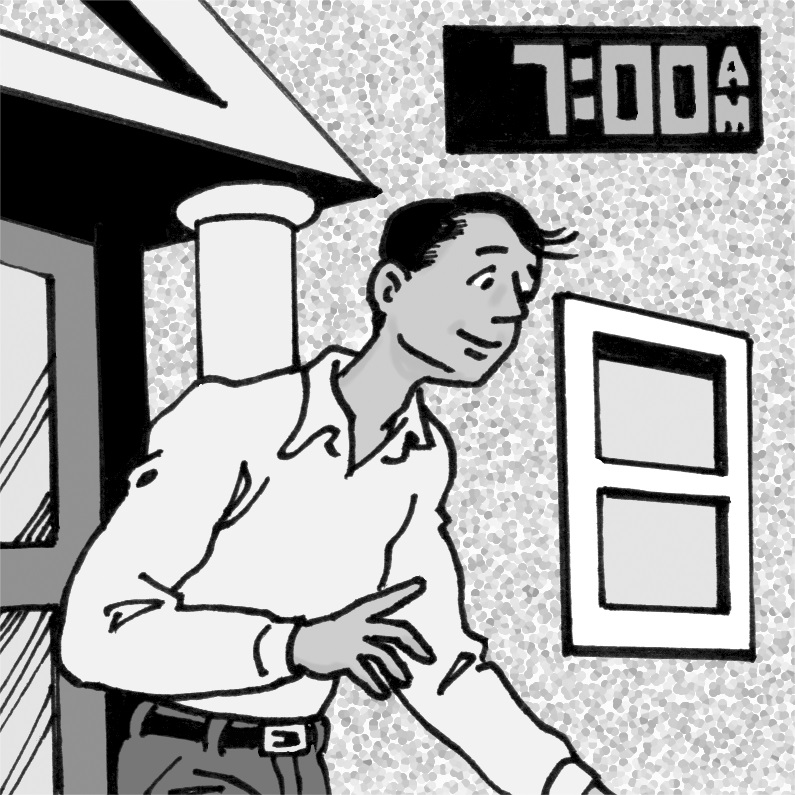
2. 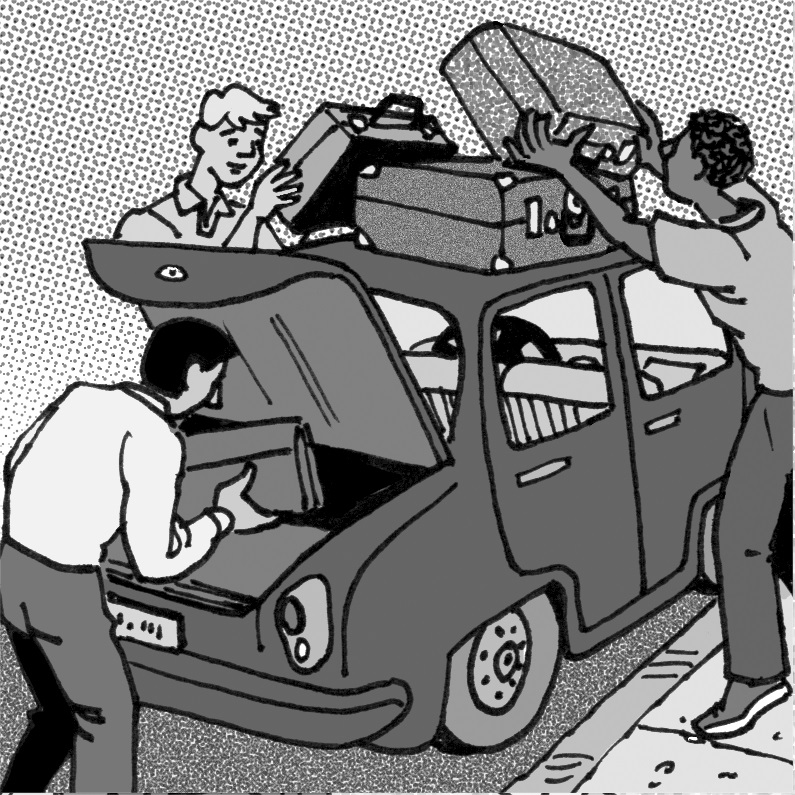
3. 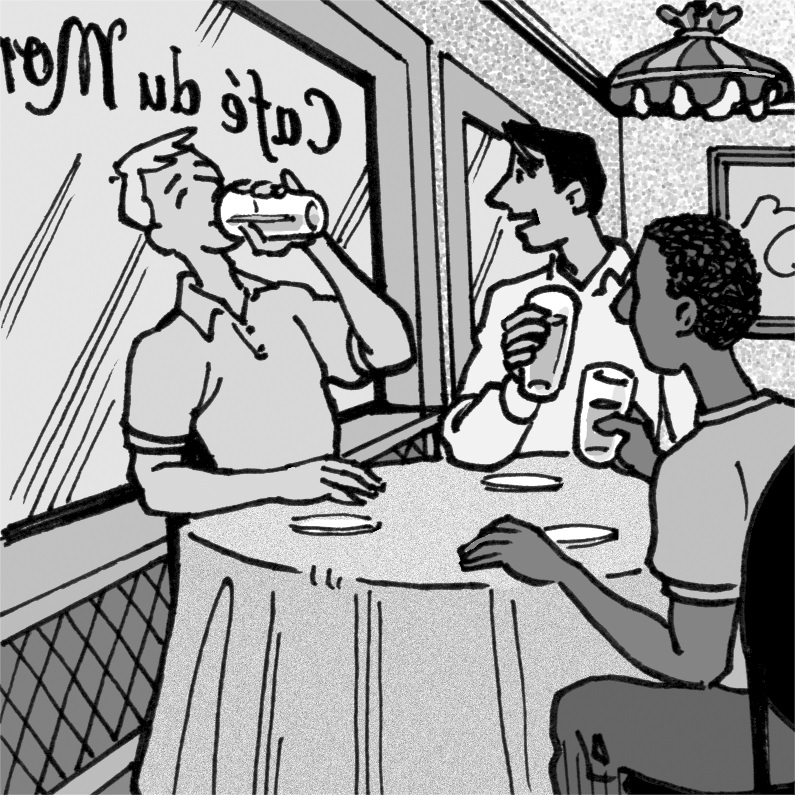
4. 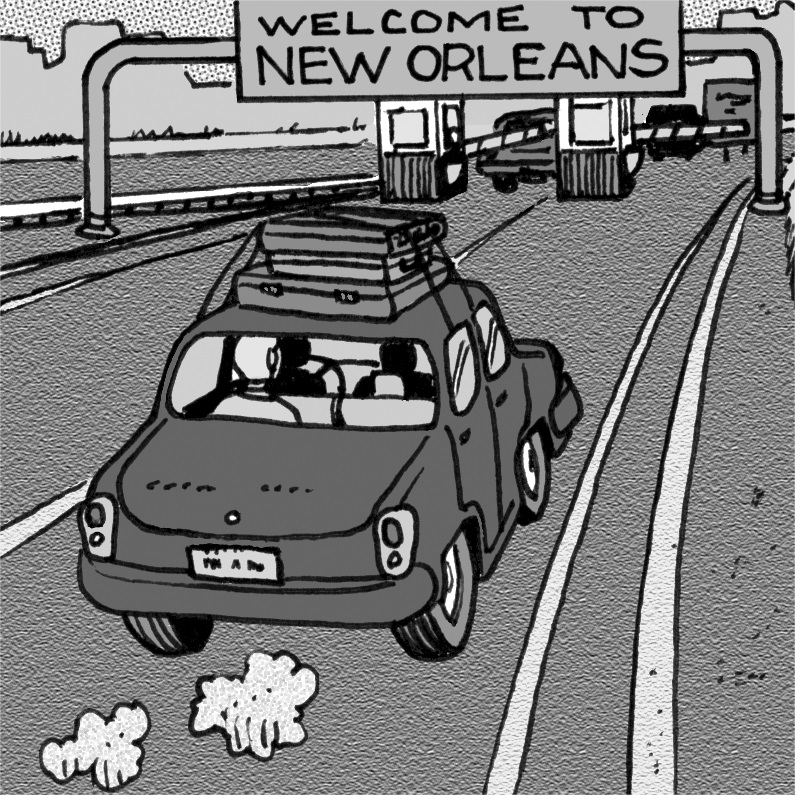
5. 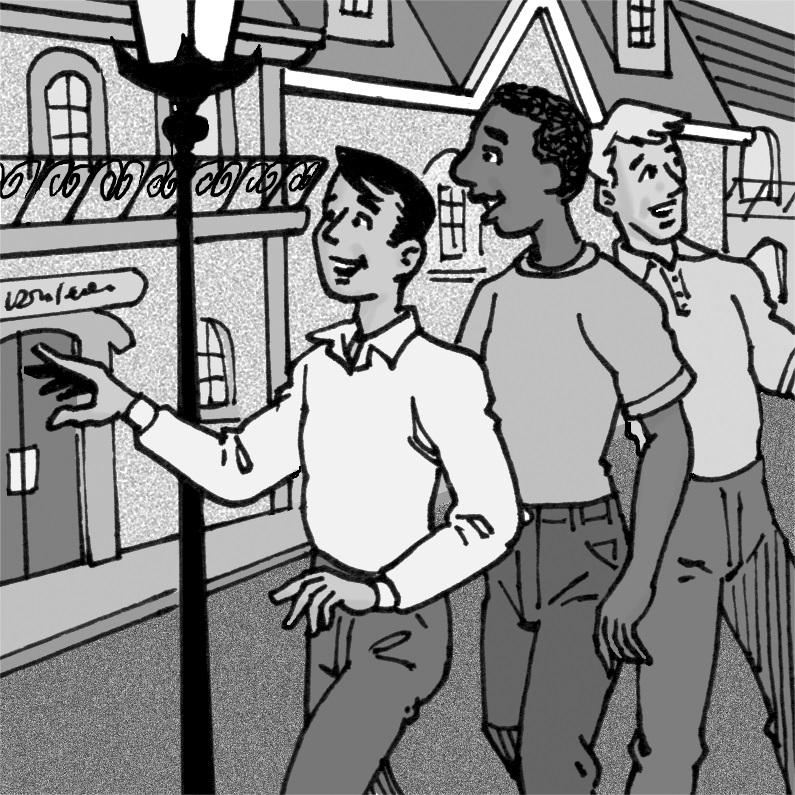
6. 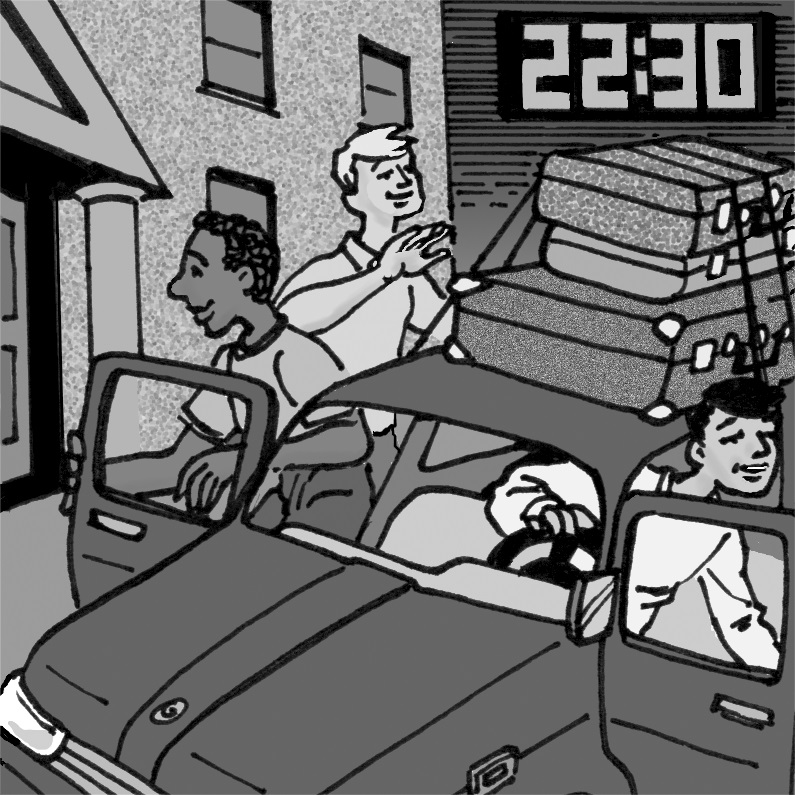
Sample answers:
Je vais / Je ne vais pas…
1. … quitter la maison tôt.
2. … partir pour le week-end.
3. … aller boire quelque chose au café.
4. … visiter une autre ville.
5. … faire un tour de la ville.
6. … rentrer tard
You might also like to view...
The organizational pattern used in this excerpt is
Comic books have spawned several of the most well-known fictional characters ever developed. Superman, Batman, and Spiderman are perhaps the strongest characters of this genre. They have been developed into television shows, movies, books, video games, and other forms that survive each generation. Why do they last? There may be several reasons for their continuing popularity: First, they always encounter obstacles, yet always catch the bad guy or right the wrong, reinforcing to us that success is possible although never easy (even with super powers or gadgets). Second, they are all incorruptible, never yielding to temptations for money or power—helping us see an ideal often lost in daily news stories of human greed and corruption. Third, they give us hope that crime can be stopped if everyone had the vigilance and perseverance of these superheroes. Fourth, the line between good and evil is sharply drawn in fiction, while in the real world the lines are often fuzzy at best, making comic book heroes a way to help clearly distinguish between the two. Fifth, they succeed despite the odds being stacked against them in the crime-ridden Metropolis, Gotham, and New York depicted in the comics, movies, and games. a. comparison-contrast. b. time sequence. c. cause-effect. d. definition.
El día de Antonio y Diego. Antonio está en su primer año de la universidad y vive con Diego, su compañero de cuarto. Ellos hacen muchas cosas juntos. Lee el siguiente párrafo sobre un día en la vida de ellos. Luego, llena el espacio en blanco con la forma apropiada del pretérito del verbo correcto entre paréntesis. Esta mañana yo (decir / tener) (1) ___________________ mucho que hacer. (Llegar / Llamar) (2) ___________________ al laboratorio de computadoras de la biblioteca muy temprano. Allí yo (buscar / salir) (3) ___________________ un sitio en Internet sobre Argentina para un informe en mi clase de historia. Yo (descubrir / abrir) (4) ___________________ que la "guerra sucia" (ser / estar) (5) ___________________ una época muy represiva para el país durante los años
70. Sin embargo (However), yo no (poner / poder) (6) ___________________ encontrar suficiente información. Más tarde, Diego, mi compañero de cuarto, (venir / poder) (7) ___________________ a la biblioteca para verme. Él y yo (ir / dar) (8) ___________________ a almorzar en la cafetería con unos amigos. Luego, nosotros (abrir / volver) (9) ___________________ a la biblioteca para estudiar más. Más tarde Diego me (saber / decir) (10) ___________________ que ya era (was) muy tarde y él (conseguir / regresar) (11) ___________________ a la residencia. Yo (hacer/querer) (12) _____________ mi trabajo escrito para la clase de historia y (venir/salir) (13) ______________ muy tarde de la biblioteca. Al llegar al cuarto a la 1:00 de la mañana, yo (despertarse / acostarse) (14) ___________________ inmediatamente.(3) Fill in the blank(s) with the appropriate word(s).
What is the function of an appositive in a sentence?
a. It follows a preposition and completes a prepositional phrase. b. It explains with what or whom the sentence is concerned. c. It helps to explain or illustrate or explain a preceding noun or pronoun.
Which sentence contains a misspelled word?
a. Martha was uncomfortable this morning; she felt too noticeable in her new outfit. b. Did you see that amazing lightening strike? It was terrifying. c. That pitcher posesses the strongest arm I've ever seen.